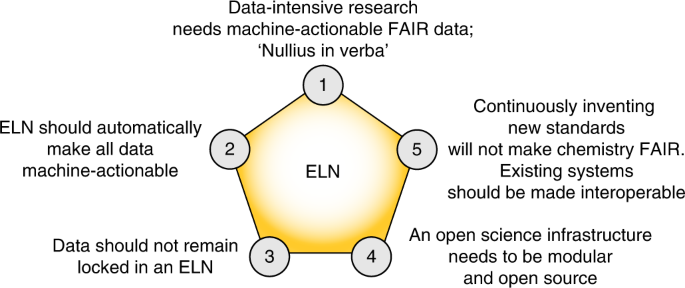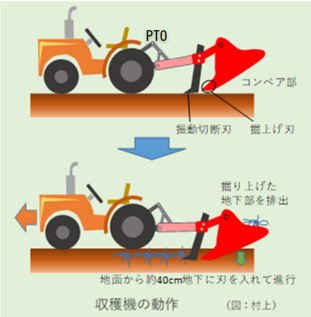2022-04-04 スイス連邦工科大学ローザンヌ校(EPFL)
・アクセス性、コラボレーション、効率性の原則に基づき、提案されたプラットフォームは、EPFLが先導する可能性があります。・FAIRデータ管理計画を作成するために、この分野が取るべき5つの具体的なステップを提案している。
1.化学界は、既存の標準と解決策を受け入れるべきである。
2.ジャーナルは、コミュニティーの標準が存在する場合、再利用可能な生データの寄託を義務付ける必要がある。
3.私たちは「失敗した」実験の公開を受け入れる必要がある。
4.すべてのデータを機械で処理可能なオープンな形式にエクスポートできない電子実験ノートは避けるべきであ る。
5.データ集約的な研究をカリキュラムに取り入れる必要がある。
「新しいファイル形式や技術を発明する必要はないと考え、原理的には、すべての技術は存在しており、既存の技術を採用し、それらを相互運用可能にする必要がある」と著者。また、電子実験ノートにデータを保存するだけなく、データは構造化され、標準化されたフォーマットで公開される必要があり、また、データ駆動型の行動を可能にする十分なコンテキストを含んでいなければならない。
「化学分野の中核的な問題に対して、データと機械学習のギャップを埋めるための重要な要素であると考えるビジョンを提供します」
<関連情報>
- https://actu.epfl.ch/news/chemical-data-management-an-open-way-forward/
- https://www.nature.com/articles/s41557-022-00910-7
化学の集合知をオープンにし、機械によるアクションを可能にする Making the collective knowledge of chemistry open and machine actionable
Kevin Maik Jablonka,Luc Patiny,Berend Smit
NatureChemistry Published: 04 April 2022

Abstract
Large amounts of data are generated in chemistry labs—nearly all instruments record data in a digital form, yet a considerable proportion is also captured non-digitally and reported in ways non-accessible to both humans and their computational agents. Chemical research is still largely centred around paper-based lab notebooks, and the publication of data is often more an afterthought than an integral part of the process. Here we argue that a modular open-science platform for chemistry would be beneficial not only for data-mining studies but also, well beyond that, for the entire chemistry community. Much progress has been made over the past few years in developing technologies such as electronic lab notebooks that aim to address data-management concerns. This will help make chemical data reusable, however it is only one step. We highlight the importance of centring open-science initiatives around open, machine-actionable data and emphasize that most of the required technologies already exist—we only need to connect, polish and embrace them.



